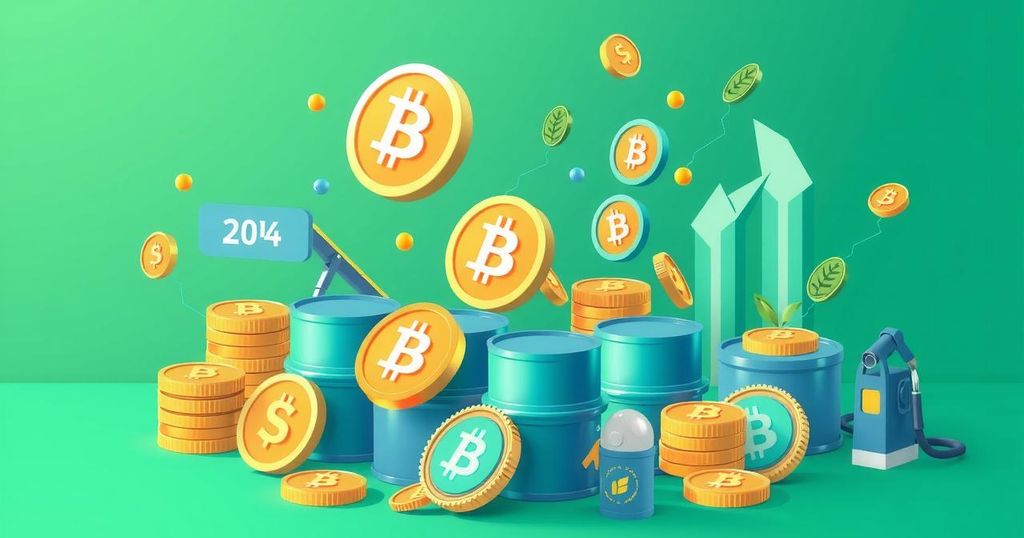Bolivia plans to utilize USDT for fuel imports as a response to a critical shortage of U.S. dollars. The government approved Supreme Decree No. 5348, which empowers YPFB to acquire digital assets for importing oil derivatives, marking a significant shift in its economic strategy amidst ongoing financial challenges.
Bolivia has made a strategic shift to address its fuel crisis through the use of the cryptocurrency USDT for fuel imports amidst a severe shortage of U.S. dollars. The government, led by President Luis Arce, has approved Supreme Decree No. 5348, which authorizes YPFB (Bolivian Fiscal Oilfields) to transact in digital assets for the acquisition of oil derivatives. This policy marks a significant change in Bolivia’s approach to its ongoing economic challenges, particularly the dwindling USD reserves.
The impetus for this decision comes from an acute oil-derivative crisis affecting Bolivia. The new decree allows YPFB to procure foreign currency from public banking entities to facilitate the importation of essential fuels such as crude oil and diesel. The use of USDT is particularly notable as it is a stablecoin pegged to the U.S. dollar, potentially offering a temporary relief to the country’s economic pressures.
Interestingly, Bolivia’s government had previously banned cryptocurrency trading in 2022. However, this latest move indicates a willingness to explore digital currencies as a viable solution to economic difficulties. Despite the risk of a currency devaluation impacting the Bolivianos, the Introduction of USDT signifies an innovative attempt to stabilize the fuel supply amid a pressing financial crisis.
Reports highlight that the informal or “parallel dollar” market in Bolivia has reacted sharply, with the value of local currency fluctuating amid concerns over insufficient USD reserves. Nevertheless, the utilization of cryptocurrencies like Tether presents an opportunity for the Bolivian government to directly address the immediate fuel-import crisis without becoming excessively reliant on conventional foreign currency reserves.
In summary, Bolivia’s decision to implement digital assets for fuel imports represents a significant pivot in its economic strategy. It aims to tackle the dual challenges of diminishing dollar reserves and a critical fuel shortage through the adoption of cryptocurrencies, specifically USDT, as part of its short-term economic recovery plan.
In conclusion, Bolivia’s approval of the use of USDT for fuel imports highlights a strategic response to the country’s severe U.S. dollar shortage. By leveraging cryptocurrencies, Bolivia aims to mitigate its fuel crisis while navigating financial instability. This innovative approach, despite prior cryptocurrency bans, exemplifies the adaptability of governments in times of economic distress, reflecting a potential new era in financial strategies for resource procurement.
Original Source: www.bitcoinsensus.com






